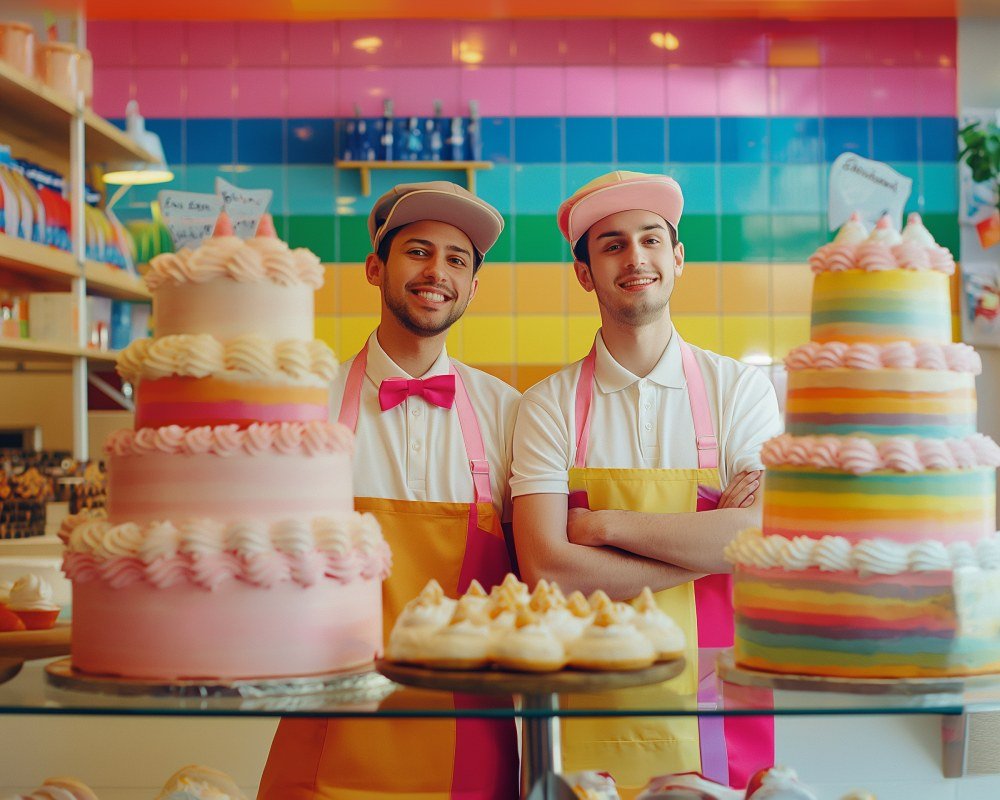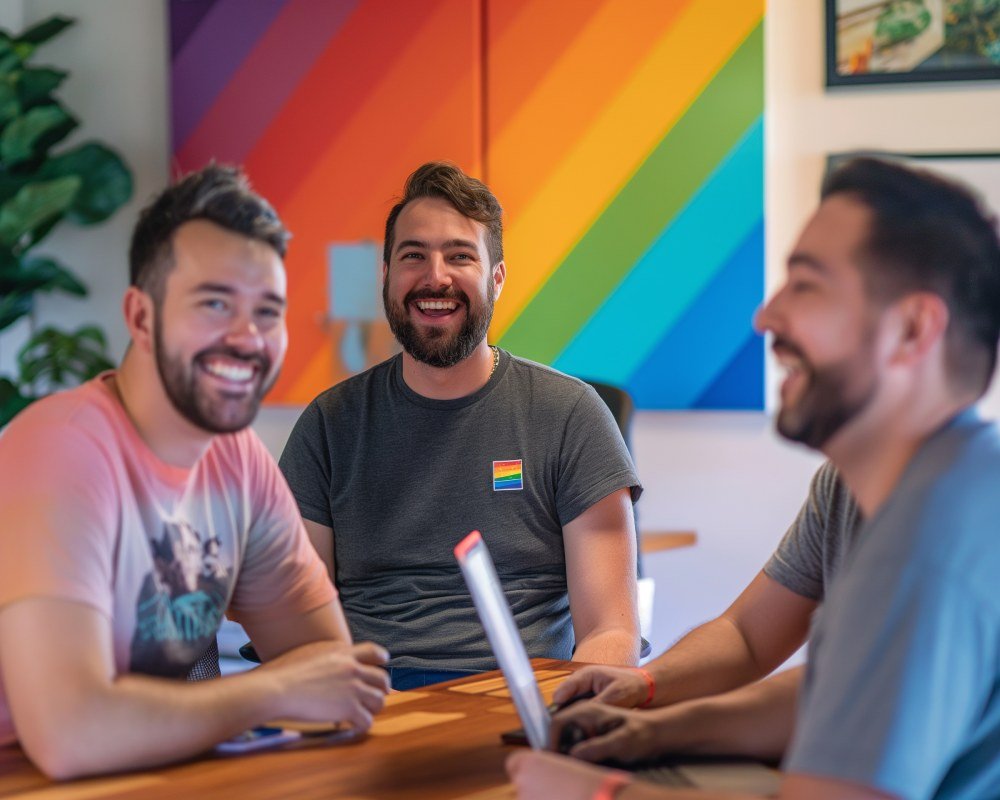
Are veterans considered DEI? –
In the realm of Diversity, Equity, and Inclusion (DEI), the question often arises: Are veterans considered DEI? The short answer is yes. Veterans’ unique experiences and backgrounds contribute substantially to DEI discussions, bridging gaps between various identities and fostering understanding across different demographics. This exploration helps illuminate their pivotal role within diverse communities, including the LGBTQ+ sector.
Understanding DEI: The Broader Context
Diversity, Equity, and Inclusion—commonly abbreviated as DEI—represent a framework used to promote fair treatment and full participation for all individuals, particularly those from marginalized or historically underrepresented groups. Diversity encapsulates the presence of differences encompassing race, gender, sexual orientation, and more. Equity ensures just treatment and equal opportunities, while Inclusion involves creating environments where everyone feels welcomed, respected, supported, and valued. But where do veterans fit into this narrative? By examining the integration of veterans within DEI, we see the multi-layered identities they bring to the forefront, enriching workplaces and communities.

Are Veterans Considered DEI? A Closer Look
The keyword “Are veterans considered DEI?” demands a nuanced understanding. Veterans come from diverse backgrounds in terms of race, gender, and sexual orientation, including gay, lesbian, transgender, and queer identities. Moreover, their military experiences imbue them with unique perspectives and skills contributing significantly to the DEI conversation. By incorporating veterans into DEI initiatives, organizations recognize the breadth of diversity encompassing not just demographic traits but also experiential insights. Thus, veterans undeniably play an essential role in enhancing DEI frameworks.
Advertisement · Scroll to continue
Recommended
The Intersection of LGBTQ+ and Veteran Status
Exploring the intersection between LGBTQ+ identities and veteran status provides insight into nuanced DEI considerations. Many veterans identify as gay, lesbian, bisexual, transgender, or queer, and their experiences within the military are further colored by these identities. For example, policies like “Don’t Ask, Don’t Tell” have historically complicated how LGBTQ+ veterans navigate their identities. Overcoming such challenges unveils the resilience and adaptability veterans bring to the LGBTQ+ communities, fostering inclusivity and empathy. Embracing this intersectionality is crucial in maximizing both veteran and LGBTQ+ representation in DEI programs.

Benefits of Including Veterans in DEI
Incorporating veterans into DEI initiatives offers multifaceted benefits beyond merely meeting quotas or diversity requirements. Veterans bring unique skills and experiences, such as discipline, leadership, and the ability to work under pressure, which enhance organizational dynamics. They offer perspectives shaped by diverse experiences and global exposure, advocating for innovative problem-solving techniques. In addition, promoting veterans within DEI can also improve mental health awareness and support networks, which significantly benefit organizations, particularly in fostering empathetic and understanding communities aligned with LGBTQ+ support.
How Can Organizations Better Support Veterans in DEI?
To effectively include veterans in DEI initiatives, organizations must adopt comprehensive strategies centered around engagement, support, and development. Fostering an inclusive culture involves implementing veteran-specific resources, such as transition support services, mentorship programs, and mental health initiatives. It’s crucial to compute veterans’ collective experiences into diversity training and awareness campaigns, one that encompasses identities such as LGBTQ+. Encouraging dialogue, representation, and participation helps to bridge understanding while supporting their unique needs. By doing so, companies create a harmonious environment conducive to maximum productivity and innovation.

Advertisement · Scroll to continue
Recommended
Are Veterans Considered DEI? FAQs and Common Misconceptions
The question “Are veterans considered DEI?” often sparks numerous questions. Some common misconceptions include that veterans are too homogeneous to contribute positively to diversity. However, this disregards the variances in backgrounds, roles, and identities that veterans have. Another misconception is the belief that veteran contributions lack relevance to the civilian workforce. In reality, veterans possess skills and experiences that are invaluable in civilian contexts, including adaptive problem-solving and leadership. Addressing these misconceptions through education and storytelling can reinforce why veterans are a crucial component to DEI.
Dismantling Stereotypes
Stereotypes about veterans can hinder their contributions to DEI. Many assume veterans have a rigid mindset, yet their diverse military experiences often foster flexible and innovative thinking. Educating teams about the varied backgrounds of veterans can help dismantle these stereotypes, encouraging more inclusive and welcoming environments for both veterans and other diverse groups.
Promoting LGBTQ+ Veterans
LGBTQ+ veterans face unique challenges worthy of recognition within DEI. Promoting their stories of resilience and adaptability encourages broader acceptance and understanding. Offering platforms where LGBTQ+ veterans can share their experiences is crucial in embracing underrepresented voices within DEI.
Are Veterans Considered DEI in the Context of Gay Thrive LGBTQ+ Marketing Agency?
At Gay Thrive LGBTQ+ Marketing Agency, incorporating veterans within DEI initiatives aligns with broader goals of inclusion and representation. Understanding the multifaceted identities veterans bring, including those identifying as gay, lesbian, transgender, queer, or bisexual, enriches marketing strategies by reaching a wider audience. By recognizing veterans as part of DEI, the agency can better connect with and support diverse communities, fostering comprehensive campaigns that resonate across various identities. Committing to veteran inclusion helps navigate complex social landscapes, ultimately enhancing client engagement and brand loyalty.

Best Practices for Including Veterans in DEI Initiatives
Implementing best practices for veteran inclusion in DEI involves a commitment to ongoing education, support, and integration within organizational frameworks. Consider the following strategies:
- Inclusive Policies: Develop and enforce anti-discrimination policies specifically addressing veterans and LGBTQ+ identities.
- Training Programs: Incorporate veteran-specific sessions within DEI training, emphasizing their diverse skills and perspectives.
- Support Networks: Establish veteran support groups or mentorship programs to aid transition and champion inclusive growth.
- Representation: Ensure veterans are visible in decision-making roles within organizations.
By adopting these strategies, organizations like Gay Thrive can further promote a thriving, inclusive environment.
Conclusion: Why the Question “Are Veterans Considered DEI?” Matters
The question “Are veterans considered DEI?” serves as a catalytic inquiry prompting organizations and communities to reassess and expand their definitions of diversity. Recognizing the vital role veterans play in DEI initiatives not only enhances inclusion but also elevates the capacities of teams to innovate and drive cultural progress. As the Gay Thrive LGBTQ+ Marketing Agency and similar organizations continue to expand DEI efforts, integrating veteran perspectives will remain integral to building vibrant, diverse communities that celebrate and leverage every individual’s unique contributions.
Advertisement · Scroll to continue

More Recommended
Target’s Approach to Engaging Lesbian Consumers
From Pride Month to Everyday Shopping: Target’s Approach to Engaging Lesbian Consumers Target is a [...]
What Is A Chapstick Lesbian
What is a Chapstick Lesbian? A Comprehensive Guide to Understanding the Term When exploring the [...]
Behind the Scenes: The Stories of Lesbian Entrepreneurs Making Waves in the Advertising Industry
The Stories of Lesbian Entrepreneurs Making Waves in the Advertising Industry Lesbian entrepreneurs are making [...]
Exploring the History of Gay Pride Celebrations
Exploring the History of Gay Pride Celebrations – June is recognized as LGBTQ+ Pride Month, [...]
Gay Art & Culture: Best LGBTQ+ Galleries Worldwide
Gay Art & Culture: Best LGBTQ+ Galleries Worldwide – The fascinating realm of LGBTQ+ art [...]
Gay Dolphin Myrtle Beach – All You Need To Know
Gay Dolphin Myrtle Beach – All You Need To Know: A Long, Informative Look at [...]
Pride in Business: The Rise of LGBT-Owned Companies
Pride in Business: The Rise of LGBT-Owned Companies – Pride in Business: The Rise of [...]
The Impact of Lesbian-Owned Businesses on the Economy
The Impact of Lesbian-Owned Businesses on the Economy In today’s society, representation matters more than [...]
Why Are Gay Icons Important to LGBTQ+ Culture?
Why Are Gay Icons Important to LGBTQ+ Culture? – Icons play a crucial role in [...]